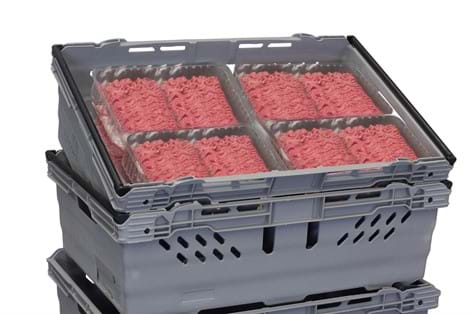Bracing for Brexit? phs Teacrate Can Help
With Brexit approaching (or not) none of us really know what to expect for consumers or industry over the coming months and years. Businesses in particular are concerned about supplies, free-trade and taxes, all of which have been predicted to be affected by the UK leaving the European Union.

Although there has recently been positive news from the Prime Minister regarding the possibility of a new Brexit deal, in this uncertainty, many businesses are stockpiling products in order to avoid any negative impact, if and when our membership of the EU terminates on 31st October, as Boris Johnson is adamant it will.
Should We Be Worried About Brexit?
With the prospect of additional taxes and red tape at UK borders, many fear that a no-deal Brexit could mean major delays at ports and/or an unwillingness for EU-based suppliers and customers to do business with the UK, hence the stockpiling on both sides of the English channel. Any additional costs may have to be passed on to customers and more stringent packaging rules that apply to countries outside of the EU could mean that those rushing to import or export goods could be turned away entirely by customs officials.
Remember that when 2018’s Beast from the East struck, it only took a few days of restricted supplies to put consumers into a frenzy and empty our supermarket shelves. As Sainsbury’s Chief Executive, Mike Coupe warns: “We don’t have the capacity – and neither does the country – to stockpile more than probably a few days’ worth.”
While the government has declared that it is taking steps to secure supplies, regardless of whether we leave the EU with a favourable deal, it has also been implied that businesses should take the initiative to ensure that there are no shortages.
The UK imports around half of the fresh food it consumes, so while the hoarding of long-life food stuffs and products with no shelf life is possible, fresh food items cannot be stockpiled, leaving food retailers and producers having to deal with both storage and logistics issues.
The Department of Health and Social Care has already warned that medical suppliers should stockpile six weeks more stock than normal, which doesn’t send out a reassuring message to others relying on imports.
What do the Figures Say?
Whether worries are unfounded or not, the numbers definitely indicate that retailers and suppliers are taking action. Prior to the original date for leaving the EU, in March 2019, The Office for National Statistics (ONS) calculated that firms had already stockpiled an estimated £6.6bn of goods.
A decade ago, finding storage space may not have been an issue with up to 23% vacant capacity in warehouses throughout the UK at any one time, but with the increase of online shopping; development land being earmarked for residential, rather than commercial properties; and the uncertainty over the last three years regarding our standing in Europe, available UK space is now estimated at just 6.8% (Newsnight) and a miniscule 2.2% inside the M25. Of course, any space can now command a premium price with landlords not keen to encourage the short-term contracts that many retailers and manufacturers would prefer.
As you can imagine, specialised frozen and chilled warehouse space is also being snapped up as food-related businesses reserve space to store staples such as bread and butter, as well as raw ingredients for other UK favourites. It’s not just space that’s scarce. In July of this year, manufacturer’s organisation, Make UK, warned of a shortage of pallets and crates that would comply with rigorous importation rules for suppliers outside of the EU. Regulations regarding the hygiene of wooden pallets in particular, have put pallet manufacturers into a last-minute stampede to source heat treatment and businesses looking at plastic pallets, such as those from phs Teacrate as an alternative.
Bad Timing?
The promised date for leaving the EU, October 31st, is at one of the busiest times of year for the food and retail sectors, for several reasons:
- At the end of the UK growing season, retailers are starting to switch to imports as home grown supplies start to dwindle.
- Shops and food suppliers are also building up to Christmas and Black Friday, traditionally the periods which see most sales, and warehouses are already maxed out in preparation.
- Companies are preparing their balance sheets for the end of the financial year when excess stock will not reflect well on the business.
Businesses are left with the dilemma of whether to foot the bill of storage and bear the consequences of a poor balance sheet, or to invest in failsafe logistics arrangements to react quickly to possible supply shortages. We figure that most companies are doing a bit of both.
What Can We Do to Prepare for Brexit?
As well as increasing stocks in the UK, many businesses have already prematurely sent products to be stored in Europe. Stock will then be transported to EU customers on their usual order dates but from a base in France or Germany, for example.
Aside from the stockpiling, most UK-based businesses have already sought out home-grown suppliers wherever possible. To prevent panic buying or hoarding, consumers need to be reassured that supplies will not be interrupted.

In February 2019, the Government also introduced a system called the Transitional Simplified Process, or TSP which will relax import regulations for a period of a year after Brexit and deferring duty payments for a month, in an effort to prevent hold ups at port. Even if this happens, products will need to be moved quickly to keep them fresh and prevent a backlog. This means utilising the services of reactive logistics suppliers such as phs Teacrate.
phs Teacrate can handle last-minute and ad-hoc pallet and crate orders on demand, with next day delivery as standard and no minimum order. We provide complete UK coverage and hygienically clean products that are washed and swab tested at one of our state-of the art washing facilities. Make phs Teacrate part of your Brexit plan and you won’t regret it.
